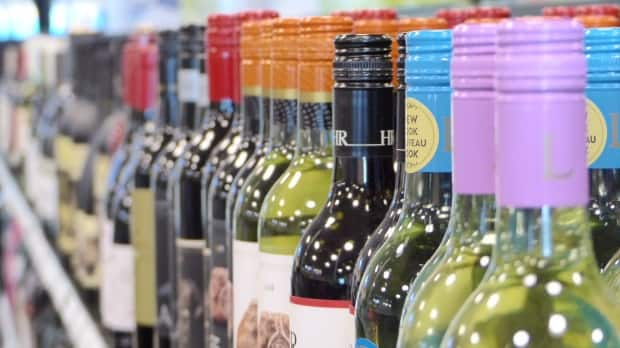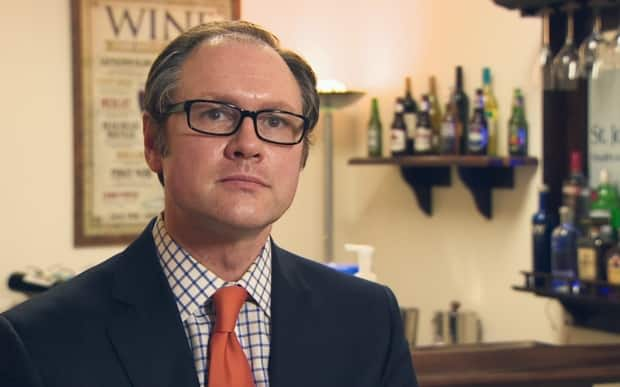Hangover headaches are the least of your worries. Scientists say drinking can be hard on the brain

For Jesica Hurst, kicking off the weekend used to mean having a glass of wine.
Drinking was also her go-to for all kinds of situations, from combating social anxiety before a big night out, to winding down after a stressful day at work.
But it came with a downside — feelings of sadness, anxiety and stress in the days that followed. And for someone with diagnosed anxiety and depression, the Toronto resident began to re-evaluate the role casual drinking played in her life, and what it meant for her wellbeing and mental health.
Around six months ago, Hurst gave up alcohol entirely.
Since then, "I've noticed that things are a lot more balanced," she said. "I still deal with the day-to-day anxieties… but it's a lot more manageable."
It's no secret that a night of drinking can rattle your head — from the brain buzz it provides in the moment, to the morning-after headaches and feelings of 'hangxiety' people often get after having a bit too much booze.

But what does science actually tell us about how alcohol affects your brain?
While liver issues, heart disease and various types of cancer are typically talked about as potential impacts of long-term drinking, research also suggests alcohol can negatively affect mental health conditions or hike the risk of cognitive problems and dementia. On the flip side, cutting back — or cutting it out — could give your brain a boost.
"We see the world through rose-tinted glasses when we're drinking," said Tim Stockwell, a scientist at the Canadian Institute for Substance Use Research and professor at the University of Victoria.
"However, that's the short-term effect. The longer-term effect is that, even just over a few hours, alcohol is a [central nervous system] depressant, and that lift of mood is replaced by tiredness, fatigue and anxiety."
'Abundant evidence'
There's a growing body of evidence of both alcohol's negative impacts on the brain, and the benefits of cutting back, echoed researcher Dr. Henry Kranzler, a professor of psychiatry and director of the Center for Studies of Addiction at the University of Pennsylvania's Perelman School of Medicine.
"Sleep is disrupted by alcohol, even modest amounts of alcohol," he said, adding that heavier drinking has also long been associated with a depressed mood.

One review of published medical research in the late 1990s suggested that, even then, "abundant evidence" showed patients with mood and anxiety disorders should abstain from even moderate drinking, as it "adversely affects their clinical course and response to treatment."
Heavier drinking, Stockwell says, can further accelerate and exaggerate emotional ups and downs.
"Anxiety is more pressing, it's more intense," he said. "The alcohol will take it away and alleviate it for a short while, but it bounces back more lively than ever."
A sweeping report on alcohol-related harms released in 2018 by the World Health Organization (WHO) described alcohol as a "psychoactive substance" affecting various neural pathways and parts of the brain.
That means the brain is affected both while someone is drinking — which can show up as increased confidence, reduced inhibitions and reaction times, and eventual impairment that can make activities like driving a car far more dangerous — and after the fact.
WATCH | Big push for warning labels:
Alcohol use is a risk factor for mental health conditions, and there's a "high level of comorbidity of severe mental disorders with alcohol and other substance use disorders," according to the WHO report. Medical literature, the report said, also shows being intoxicated can hike the risk of cognitive dysfunction, depression, or suicidal thoughts.
Kranzler's research also suggests that high levels of drinking may even mirror the effects of aging on the brain.
One of his latest papers, published in 2022 in the journal Nature Communications, relied on the U.K. Biobank, which provides one of the largest available collections of high-quality MRI brain scans.
The study, of close to 40,000 adults, looked at whether even lighter drinking could be linked to similar impacts on human brain structure as heavier alcohol consumption — which has been tied to changes to the brain's white matter, hiking someone's risk of stroke and dementia.
There were indeed negative associations between alcohol intake and brain structure even for people consuming an average of only one to two daily drinks, the research team found, an effect that became stronger as alcohol intake went up.
"We can't speak to causality, but it is highly suggestive that the effects of alcohol are demonstrable, in [the brain's] grey and white matter, and that they probably influence cognitive function," he said.
"We saw effects of drinking that were consistent with what one might see with aging."

Clear benefits of cutting back
Cutting back on drinking, or giving up alcohol entirely, can mitigate some of those negative effects, multiple researchers told CBC News.
"I think, particularly if people are drinking, say three or four drinks on average a day — or more — cutting back can result in greater mental clarity, improved mood, improved sleep, and they all kind of go together," Kranzler said.
"When you sleep, well, your mood is better, your mental clarity is greater. And so the benefits are clear."
Even heavier drinkers can witness brain-related benefits as well, some studies show.
WATCH | Drinking alcohol can affect mood, sleep, cognition function:
One research paper, published in the journal Alcohol and Alcoholism, focused on individuals "highly dependent on alcohol," and found those who cut out drinking reported that their anxiety, depression and self-esteem had all improved at the six-month mark.
But in terms of the long-term implications for the brain from ongoing alcohol use, it's hard to know exactly how many drinks per week are associated with alcohol-related brain changes, stressed Dr. James MacKillop, the Peter Boris Chair in Addictions Research at St. Joseph's Healthcare Hamilton and a professor at McMaster University.
Simply cutting back can offer benefits, he said, such as taking a break for Dry January or February, or having a "damp" month, with reduced alcohol use, since those options offer a way to probe your own behaviours or habits.
"I think we should think about brain health the way we think about every other kind of health — you know, heart disease health, cancer risk health," MacKillop added. "In many ways, the brain is the most important organ, in so far as it is who we are."
Kranzler, a self-professed wine aficionado, also isn't advocating for everyone to become a teetotaler. But even in his own life, he's chosen to cut back based on his years of research into the potential long-term harms of alcohol use.
"I'm very careful about how much I drink," he said. "And I have given up drinking anything but the wines that I really want to drink."

 Yahoo Finance
Yahoo Finance 